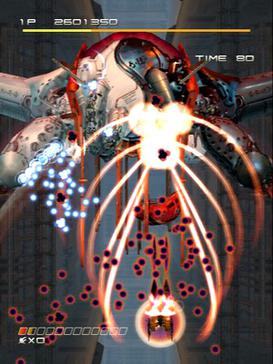Task 8
A story can emotionally tie you to the game and make you really care about what happens to the characters involved, and even a simplistic story can be enough to engage a player. I’m gonna drag Shadow of the Colossus back up here as an example of that. You’re thrown into this game with very little background story in a desolate world, but that age old fairy tale tradition of Saving the Girl is enough to spur you on. However, as the sword plunges again into the head of another awesome and kind of innocent Colossi, as it topples to the ground in all its black blood spurting, earth-shattering majesty, you start to question whether it’s really worth it, whether you’re actually doing the right thing. It’s these kind of conflicts that make a game’s story truly involving to me and it’s interesting to see games that can stir emotion with such scarce but tactful use of a plot line.
This is where I find games that have super-long-to-the-max cut scenes and over complex stories a little bit dull, for example, the Metal Gear Solid and Final Fantasy series. Now don’t get me wrong and tear me into little bite-sized pieces, these are fantastic franchises which I have enjoyed a lot, it’s just that sometimes I want to play a game where the story is a little less force fed, where I can relax and play out the story through my own actions and not be torn away by a cut scene or random battle every thirty seconds. I understand many would argue that the story is entirely the point of these games and it’s true, I‘m often utterly absorbed by very story driven games but I tend to get impatient with it all now and again… maybe I’m just simple and have a short attention span, I’m not sure. I think what I enjoy the most is a nice smooth balance of fantastic game play and an incredible and gripping story. Ooo and a good soundtrack. And killer grafix, man!



